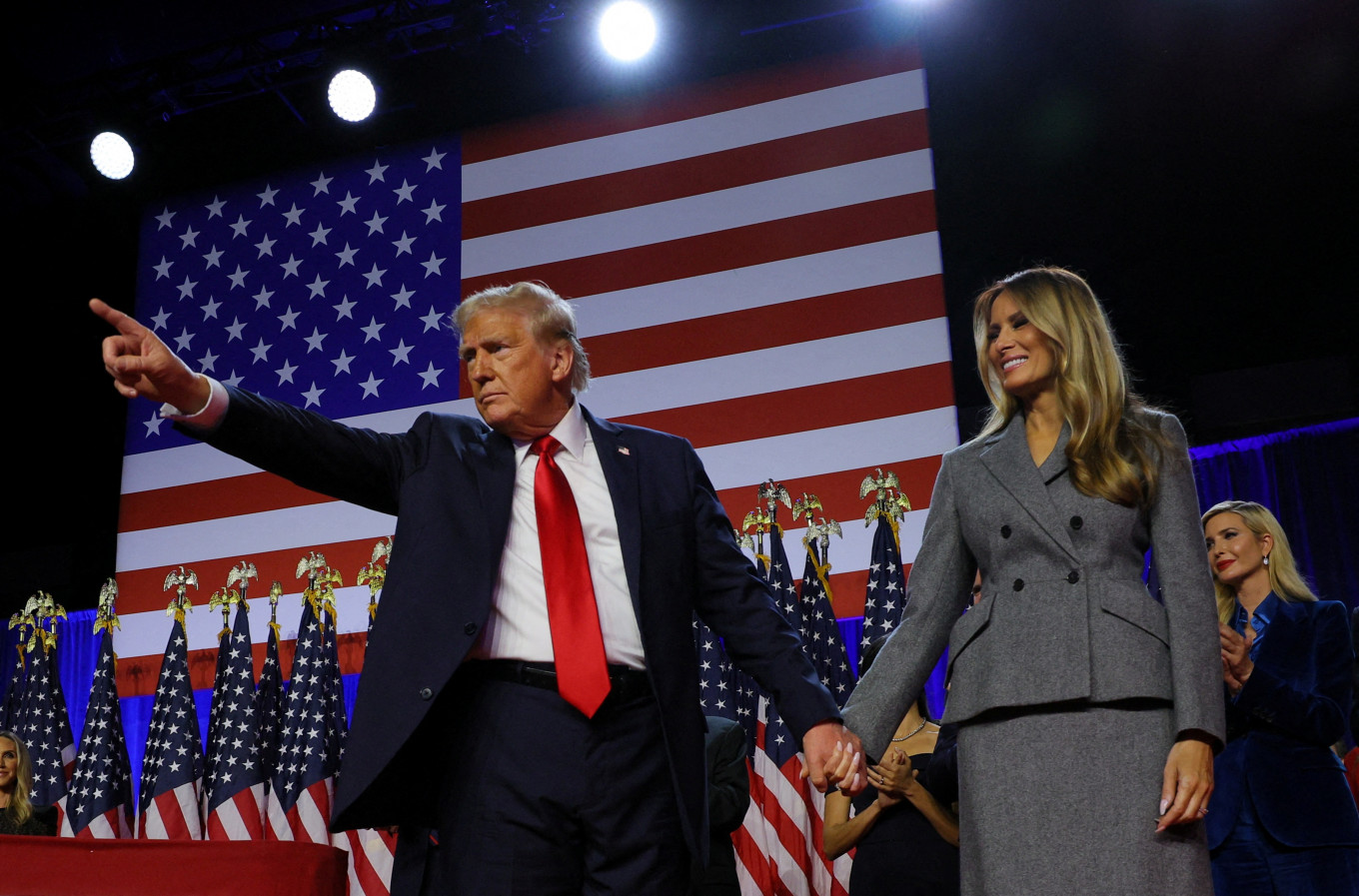Headline: Asia Braces for Economic Impact from Trump’s Trade Policies
In light of the impending inauguration of President-elect Donald Trump in January 2025, experts predict significant economic repercussions for Indonesia and Southeast Asia stemming from his anticipated protectionist trade policies. As the region prepares for potential shifts in U.S. foreign policy that could lead to slower growth and increased unemployment, anxiety looms large over geopolitical developments, particularly in relation to U.S.-China relations.
Geopolitical Landscape Shifts
During a public discussion held in Jakarta on Monday by the Konrad-Adenauer-Stiftung (KAS) and the Center for Strategic and International Studies (CSIS), analysts assessed the potential fallout from the upcoming U.S. elections on global geopolitics. The panel emphasized that many countries are recalibrating their strategies in anticipation of Trump’s presidency, which is expected to invoke a more unilateral approach to international relations, prioritizing America’s interests.
Shafiah Muhibat from CSIS articulated the concerns surrounding the changing dynamics, stating, “Indonesia and ASEAN are anxious over the prospect of a second Trump administration. We are expecting a more unilateral, protectionist approach.” Muhibat highlighted that this shift might lead to diminished U.S. engagement, foreign aid, and foreign direct investment in Southeast Asia, thus exacerbating economic uncertainties.
Understanding the Stakes
With Trump’s America-first agenda, the incoming administration is predicted to adopt an increasingly isolationist stance, leaving ASEAN nations vulnerable to reduced diplomatic and economic engagement. The experts foresee intensified competition with China, which could further stress relationships in a region that has historically relied on American support.
The conversation also examined how heightened U.S.-China rivalries may prompt a ripple effect across ASEAN economies. As tensions rise, Trump’s administration might opt for more aggressive policies toward China, potentially jeopardizing the region’s economic stability.
- Potential Economic Outcomes:
- Slower economic growth rates in Indonesia and ASEAN to follow.
- Increased unemployment rates as foreign investment wanes.
- Decrease in foreign aid and engagement from the U.S.
Historical Context and Current Concerns
The current geopolitical anxiety mirrors sentiments expressed during Trump’s first administration, where trade wars and fluctuating foreign policies created significant uncertainty not only for Indonesia but for many economies reliant on trade. As a nation with considerable economic ties to both the U.S. and China, Indonesia is particularly at risk if Trump pursues a more confrontational approach.
Experts at the discussion reiterated the importance of understanding the historical context. The U.S. has long been a vital ally and trading partner in the region, and the potential for an isolationist policy represents a dramatic departure from traditional American foreign engagement strategies in Southeast Asia.
Impacts on Trade and Investment
As analysts dissect the implications for regional trade, the importance of foreign direct investment (FDI) comes to the forefront. The expected shift toward protectionism could weaken American investments in Indonesia, negatively impacting industries reliant on U.S. capital and technology. Additionally, the reduction in U.S. influence might allow China to bolster its presence in Southeast Asia, leading to potential dependency concerns.
- Key Areas of Impact:
- Manufacturing and export sectors in Indonesia may face challenges.
- Increased competition from Chinese investments could alter market dynamics.
- Sectors reliant on U.S. technology may experience significant disruption.
Preparing for Change
In this complex geopolitical landscape, governments and businesses in Indonesia and across ASEAN must prepare for a variety of potential scenarios. Diplomatic resilience and adaptive economic policies will be critical in negotiating the changing tides. The dialogue initiated by KAS and CSIS provided a vital platform for stakeholders to discuss strategies moving forward in light of these developments.
Engaging the Community
As discussions continue, the need for transparency, dialogue, and engagement among ASEAN countries becomes ever more pressing. Stakeholders are encouraged to share insights and vet strategies to mitigate risks associated with the changing U.S. foreign policy landscape.
For further insights on related topics, visit our articles on Trade Dynamics in Southeast Asia and Trump’s First Administration: A Retrospective.
As the region faces these new challenges, readers are encouraged to stay informed and engaged. How do you foresee the implications of a second Trump administration for Indonesia and ASEAN? Share your thoughts in the comments below.
For ongoing updates on economic policies and international relations, follow us on Twitter and Facebook.
Note: Always cross-check with authoritative sources for the most current and accurate information.
How might Trump’s trade policies influence foreign direct investment in Southeast Asia, particularly in Indonesia?
World-today-news.com would like to present a thought-provoking discussion with two esteemed guests on the potential economic impacts of Trump’s trade policies in Asia. Our first guest is Dr. Yuji Nakamura, a renowned economist and professor at Keio University in Tokyo, Japan. His research focuses on international trade and finance, specifically the effects of protectionism on global markets. The second guest is Ms. Siti Fadhilah Supari, an influential businesswoman in Indonesia and a leader in the ASEAN business community. Her insights on regional trade issues and politics provide a unique perspective on the potential outcomes of recent geopolitical shifts.
Dr. Yuji Nakamura, could you elaborate on your views on the potential economic impact of a second Trump administration on Indonesia and Southeast Asia? What specific policies should we expect, and how might they affect regional trade dynamics?
Dr. Yuji Nakamura: Thank you for having me. Based on the available information, a second Trump administration is likely to continue the protectionist trade policies that we saw during his first term. This includes increased tariffs on imported goods, especially from China, and a shift towards bilateral trade agreements rather than multilateral ones. The result of these policies could be slower economic growth rates in Indonesia and Southeast Asia as a whole, as well as reduced foreign direct investment (FDI) in the region. In addition, there might be a decline in foreign aid and engagement from the U.S., which could further weaken economic ties between the two sides.
Ms. Siti Fadhilah Supari, as a prominent business leader in Indonesia, how do you see the potential economic impacts of Trump’s trade policies on your industry and the wider business community? Are there specific sectors that you are concerned about?
Ms. Siti Fadhilah Supari: The potential economic impacts of Trump’s policies on Indonesia and the wider ASEAN region are deeply concerning. As an entity that relies heavily on trade, both exports and imports, Indonesia stands to suffer significant losses if the U.S. implements protectionist measures. Manufacturing and export sectors are particularly vulnerable, as are industries reliant on U.S. technology. We cannot underestimate the potential

